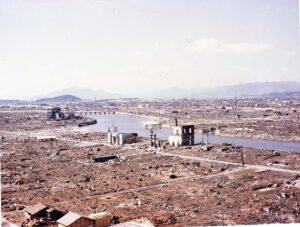Nouvelle riche in Cairo
Café Riche, for decades the intellectual hub of downtown Cairo, reopens to a mixed reception.
Downtown Cairo teems with a history that begs to be explored. Signs of that can be gleaned in the architecture and the older establishments. Taking a casual stroll at a late hour through the nearly deserted streets is a rewarding experience.
Treasures abound round every corner, especially if you get off the beaten track. Although downtown has become a crumbling edifice and cheerless concrete monstrosities are growing more dominant, many of the significant moments of the last 150 years have been played out on its streets and cafes. There is still a band of dedicated patrons who try to slow the wheel of ‘progress' and preserve the remaining vestiges of the area's identity.
Ten years to the day after it closed its doors to the public Café Riche is set to reopen them on 9 March 2000. Ostensibly closed for renovations, the management have had more to contend with than just builders. They have had to fight the spectre of demolition and the legacy left behind by the 1992 earthquake.
Rumours have been circulating for years about the reasons behind the long closure, and speculation as to its reopening date have intensified in recent months. Word around town was that Riche would finally open during the recent el-Nitaq downtown art festival, which would have signified another milestone in the area's revival. However, the meticulous and fussy management had qualms about how the event was being organised and decided to sit it out silently.
When people speak of Riche, mention is rarely made of its menu, selection of drinks or prime location. Riche has long prided itself on providing its customers with nourishment for the mind and soul – the body is secondary. Riche was one of the intellectual, art and political hubs of Cairo throughout most of the 20th century and is hoped by many to regain this role for the 21st century. Um Kalthoum, the legendary voice of the Arab World, got some of her earliest exposure there and Neguib Mahfouz used to hold his intellectual gatherings at Riche.
Articles, books, even poems have been written about Riche – mention of it can now be found on the Web. Neguib Sorour wrote a flattering poem on Riche and its patrons, Ahmed Fouad Negm, as is his forte, was not so kind. In the shadow of the humiliating 1968 defeat, Negm wrote a scathing commentary on the band of fat-cat intellectuals that gathered at Riche. In his poem, he ridiculed their empty rhetoric and detachment from reality, their impotence, and the ease and smugness with which they formulated their glib solutions to the country's woes.
Ironically, it was the same Negm who was the first guest of honour to visit the new-look Riche. He gave a poetry recital and talk to a heaving crowd, in the simple coffee-shop annex off the main restaurant, as part of the ceremonies of the last night of the festival – Riche made an exception and opened that night for an exceptional man.
No matter how much this legendary Shaabi poet has been criticised for literary bankruptcy, he was still able to keep the burgeoning crowd spellbound with his irreverence and sharp wit. I had expected the crowd to be mostly over 40 but I was pleasantly surprised to find it was mainly the 20s crowd with a generous helping of teenagers.
Of course, verse of such elusive simplicity, imagery and uncompromising directness has a certain long lasting appeal, but little did I expect that there would be teenagers from the 90s who know the master rebel of the late 60s and 70s verse off by heart – an encouraging sign.
Riche has a long and enviable history. Built in 1908 on the site of a royal palace, it had humble beginnings as a normal, run-of-the-mill coffee shop, reputedly modelled around Café Riche in Paris by its French proprietor. The turning point in its history was when it was taken over by a Greek-Egyptian, Michelle Nicola Bolitez, who was a lover and patron of the arts. He set up a theatre there that soon become one of the most well-known performance spaces in town.
Riche has also had its share of intrigue. The assassination of an unpopular prime minister, Yousif Wahba, was carried out by a man who had been sitting in Riche's garden. Many of the minds behind the 1919 revolution gathered there and their anti-British leaflets were long thought to have been printed there. This was confirmed during renovation work, when builders accidentally stumbled upon a secret cellar, which has now become the bar area, with an old-fashioned printing press and some discarded leaflets. You can admire this piece of revolutionary machinery, which is displayed in a glass cabinet, over a few drinks.
The management are proud of their establishment and its history, as can be seen from the gallery of portraits in the restaurant, each lovingly spotlighted. Entering Riche is like walking into a museum or a hall of fame.
However, the management are insistent that the place is by no means touristy or a museum. They admit that there are people who would come so they can sit on the same chair as that once sat on by Yousif Idris. However, they are hopeful that the place will regain its diversity and dynamism, but they place the impetus on the younger generation. They say it is up to the new generation to make the place their own and stamp their identity on it.
Here's to Riche resurrecting its spirit and not just its ghost.
_______
This article appeared in the March 2000 issue of Egypt's Insight magazine


